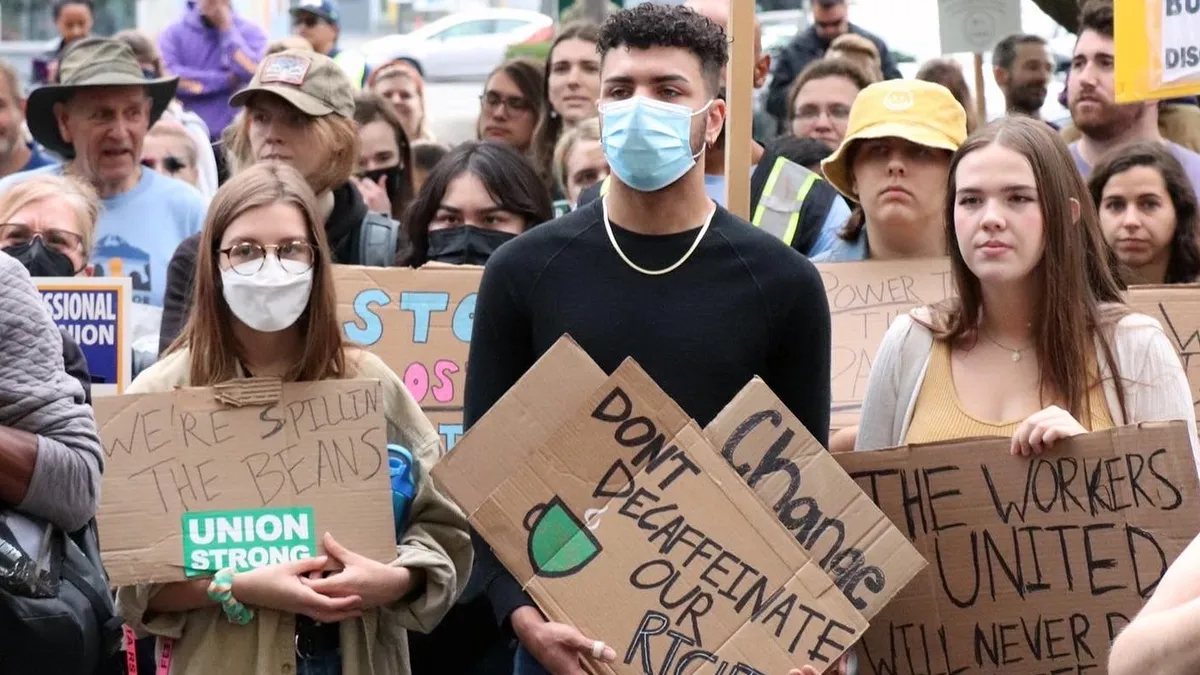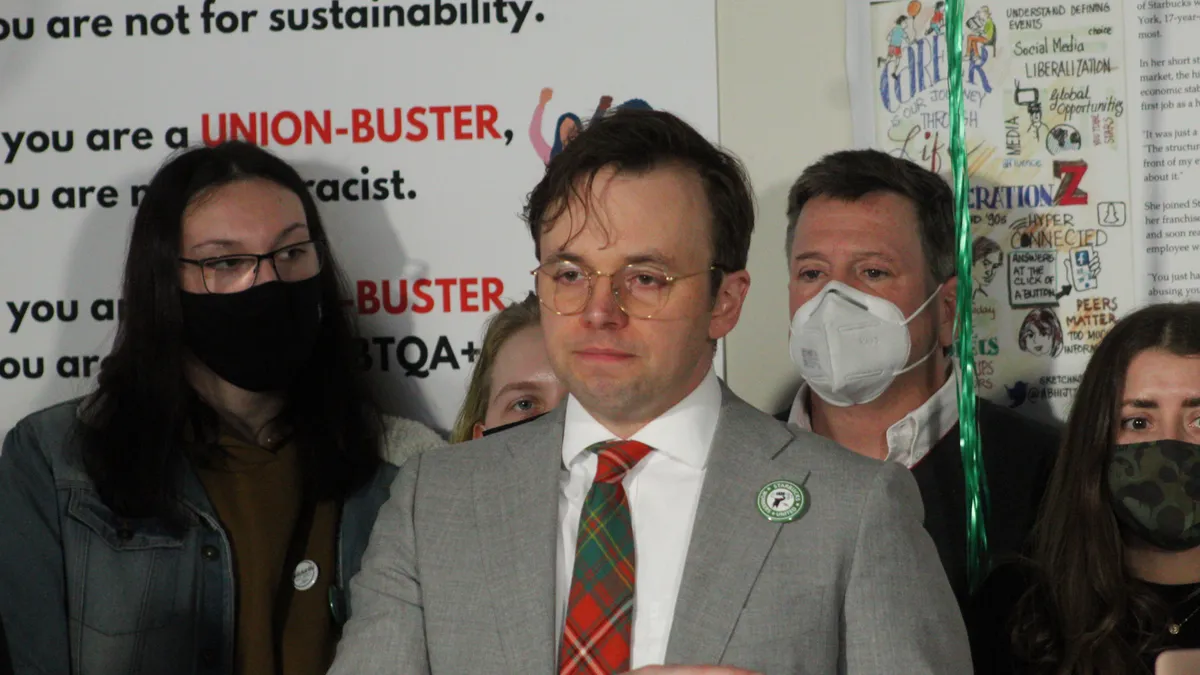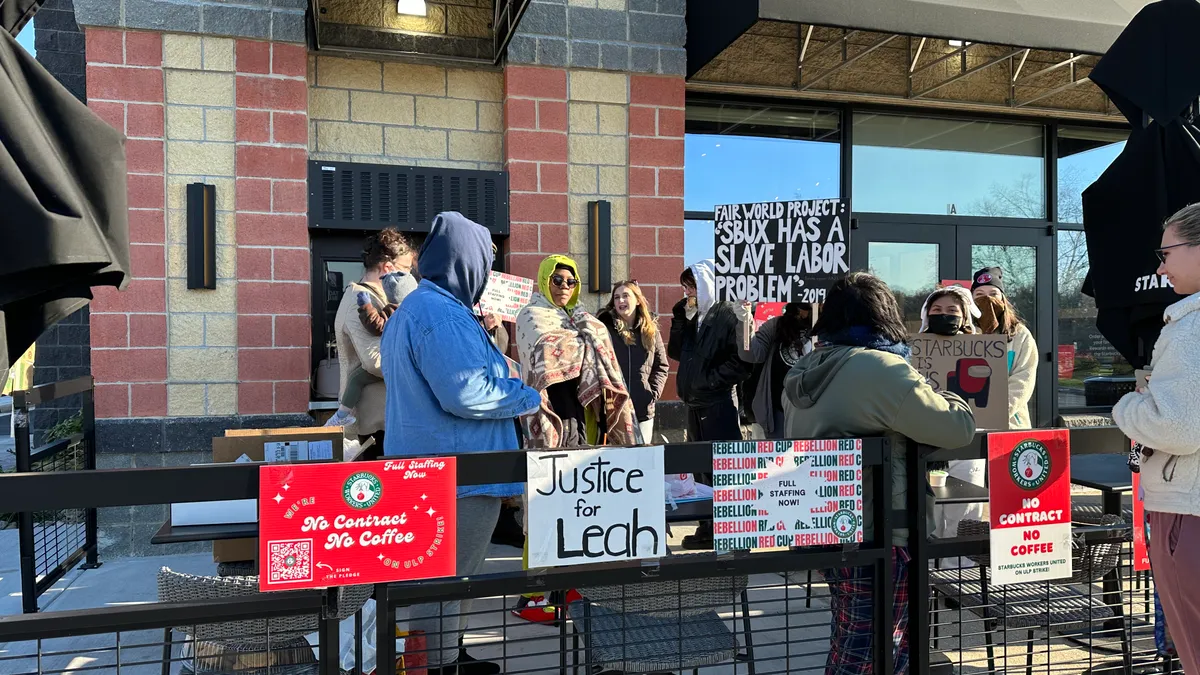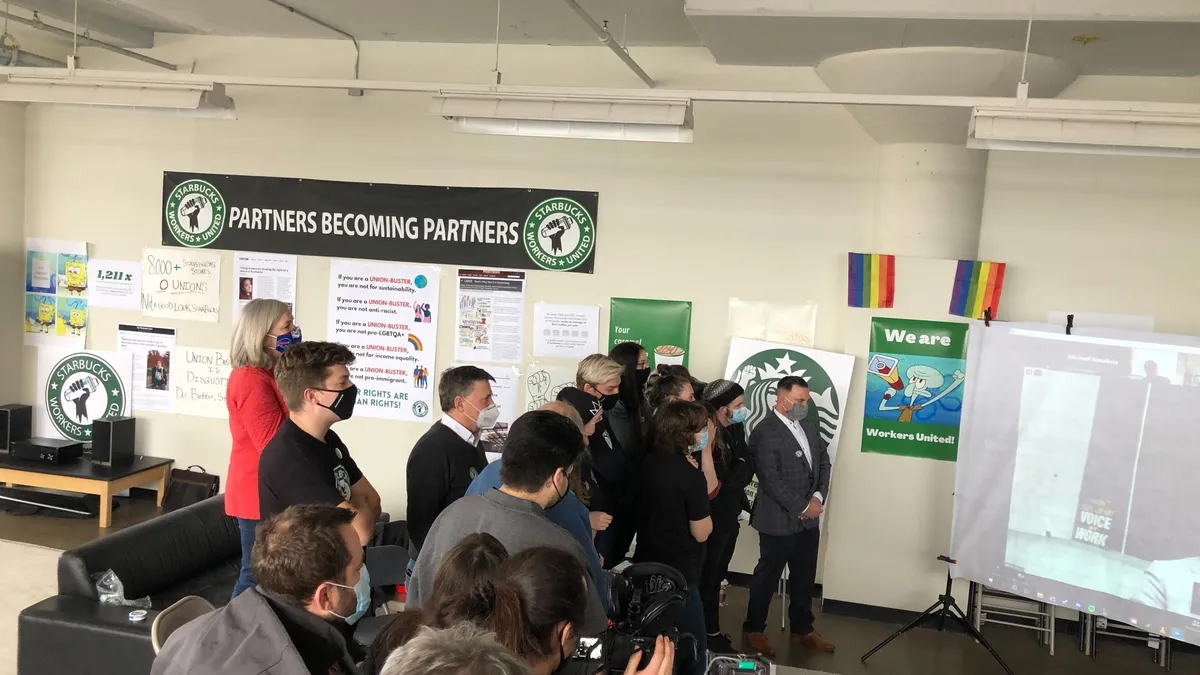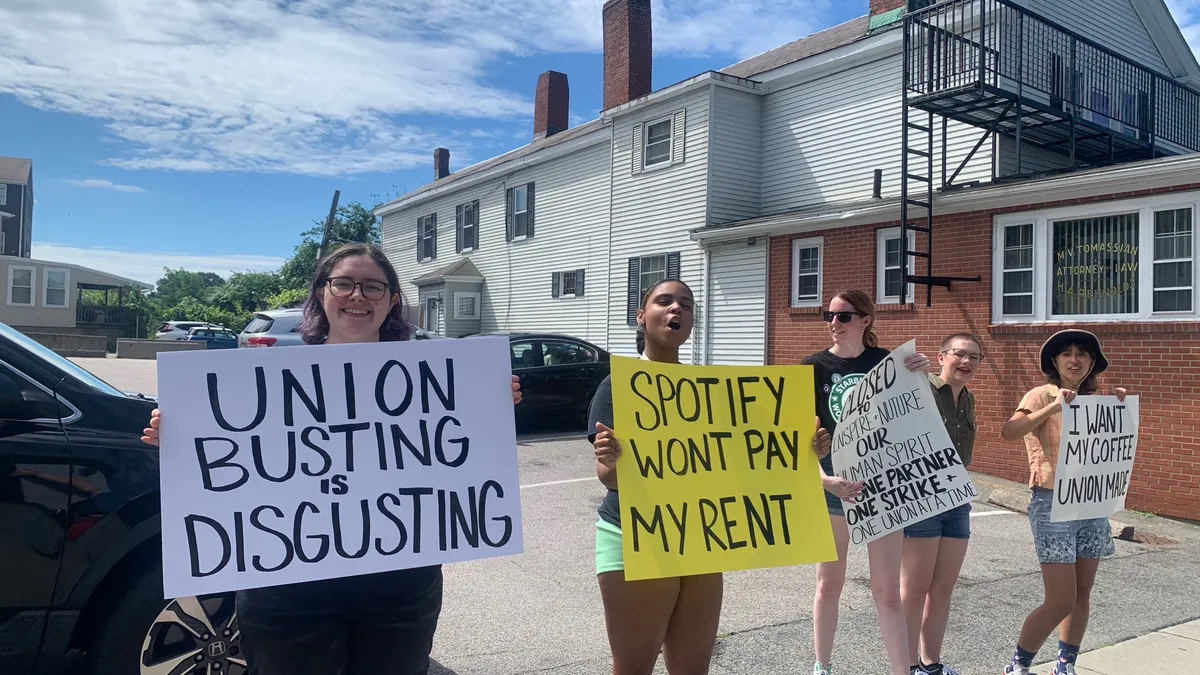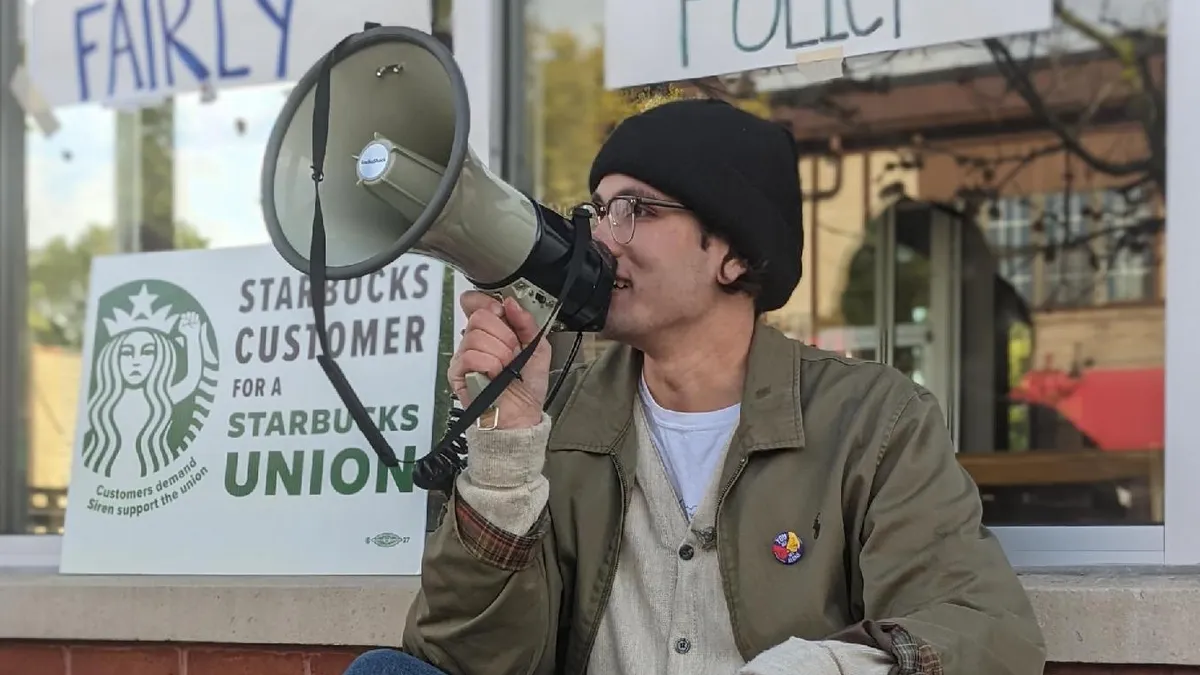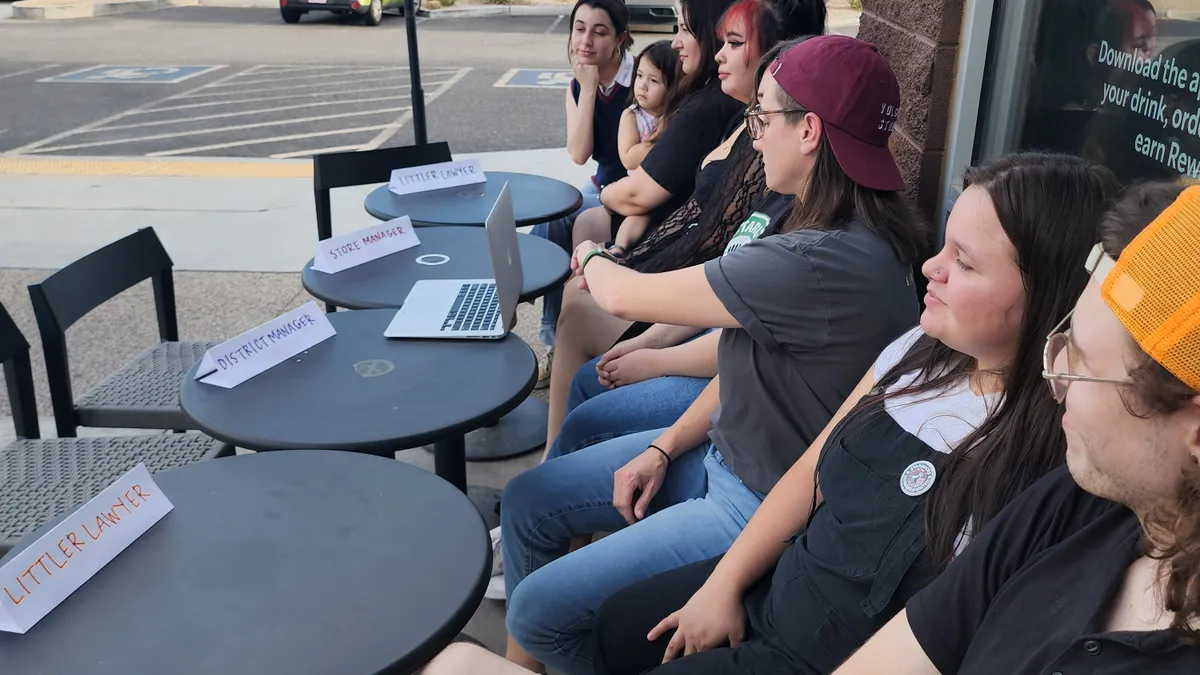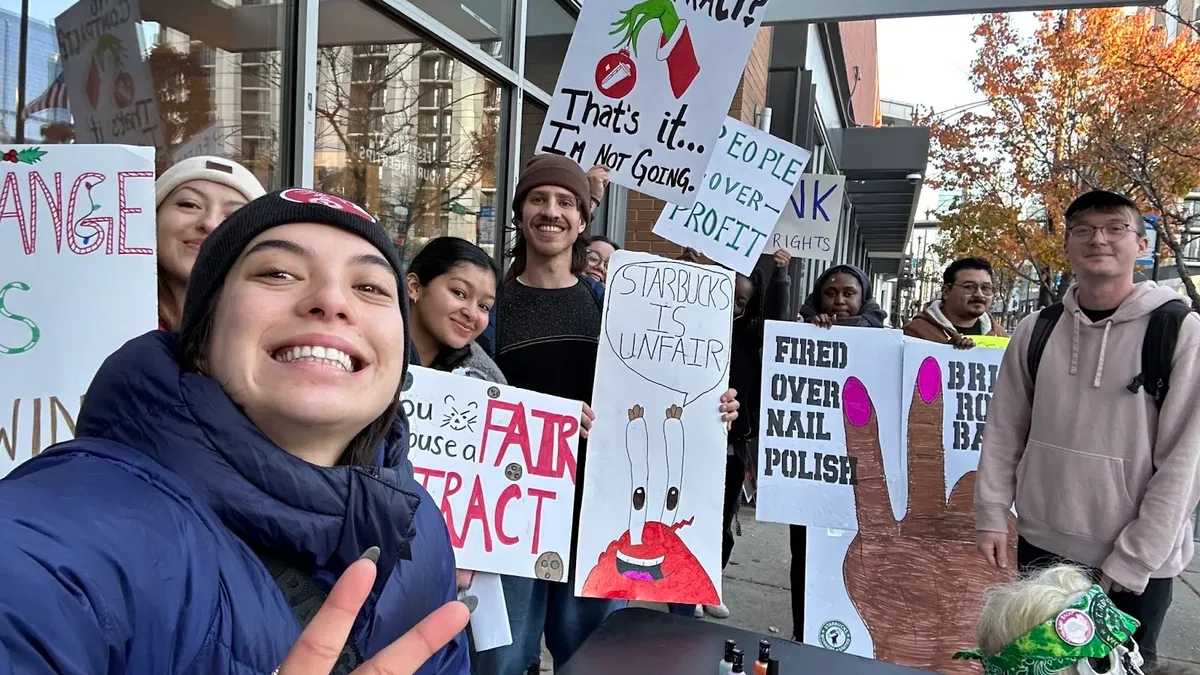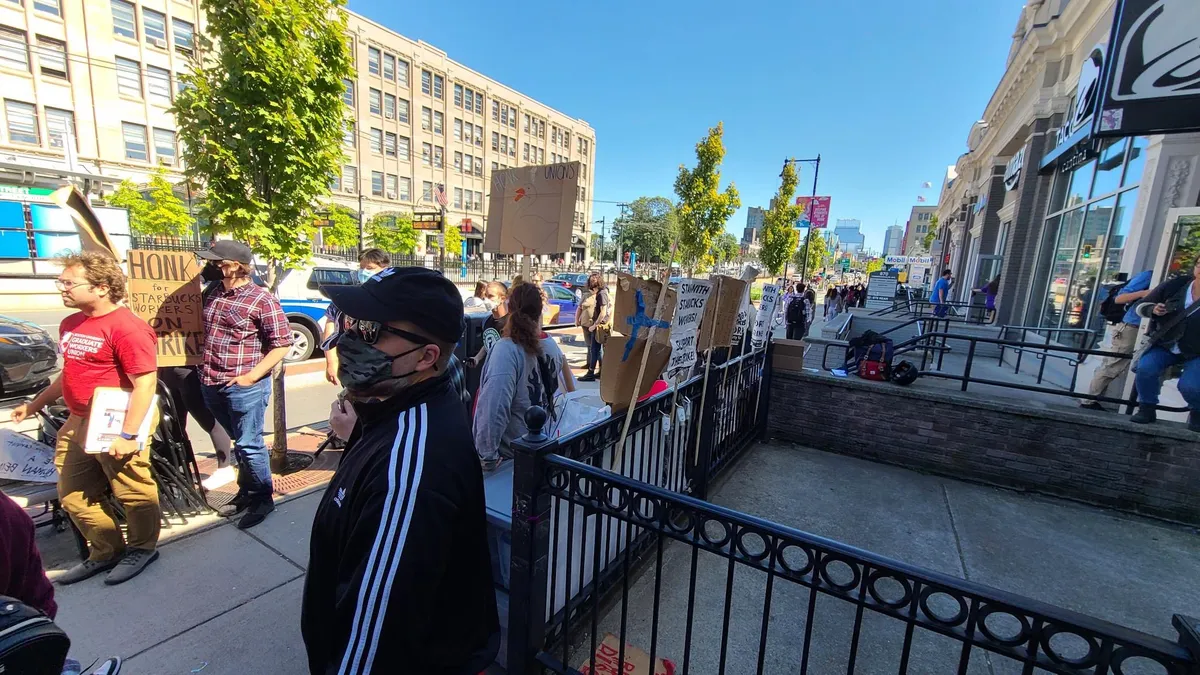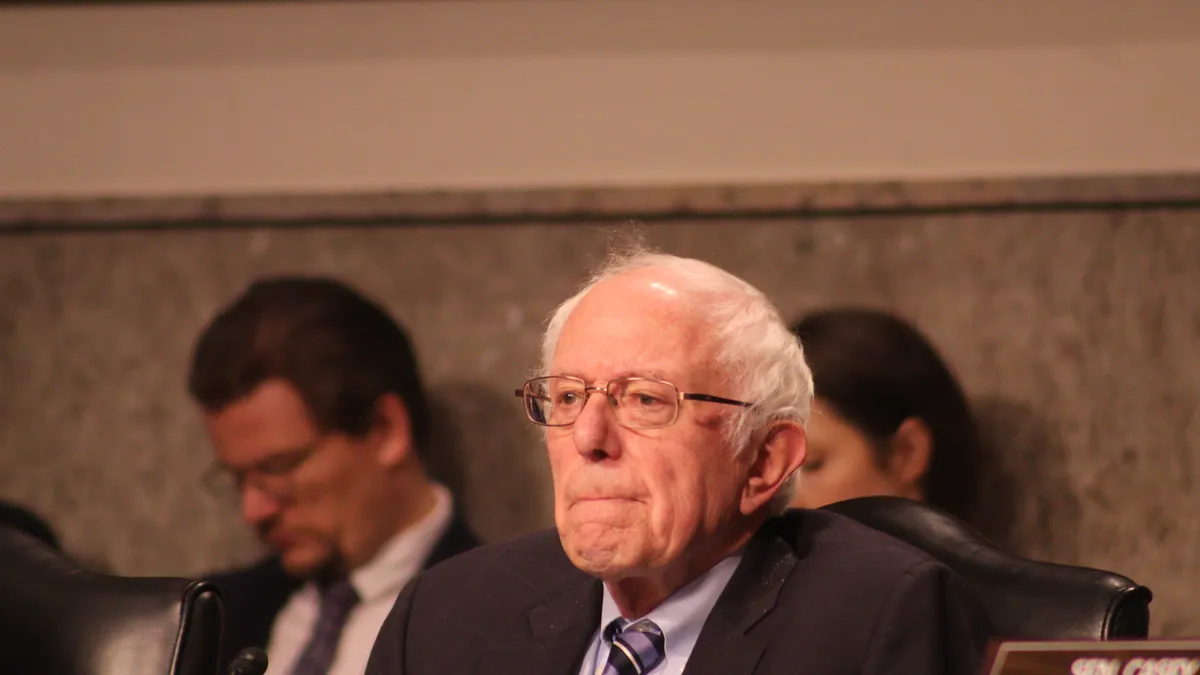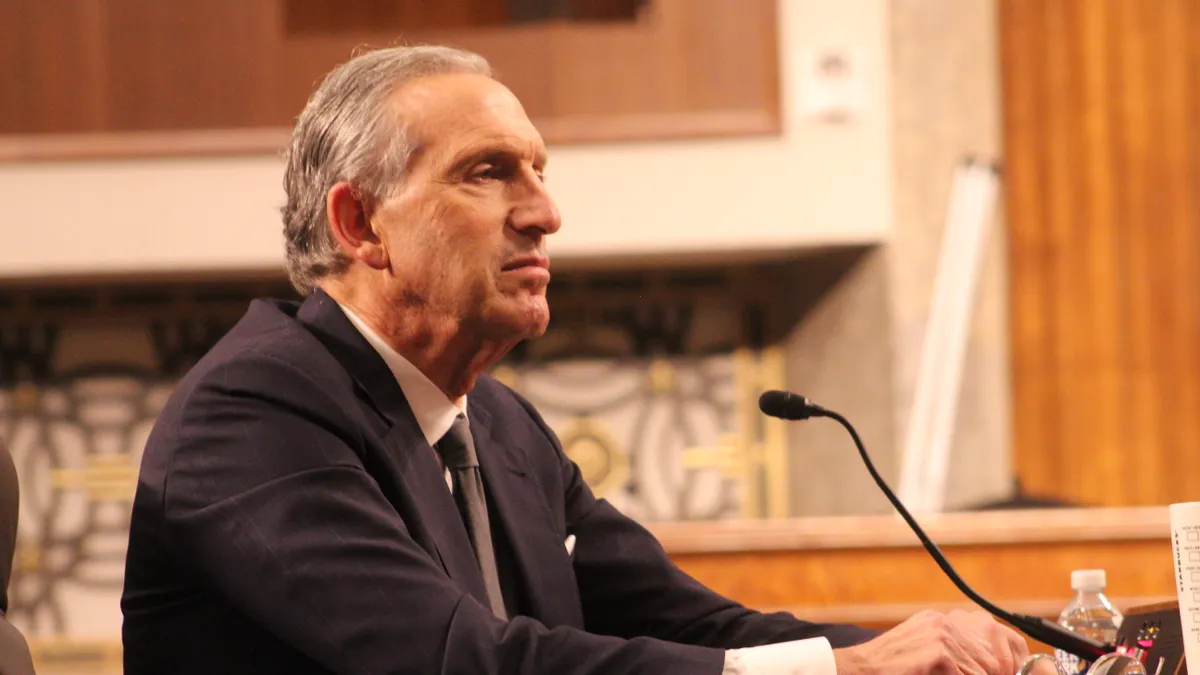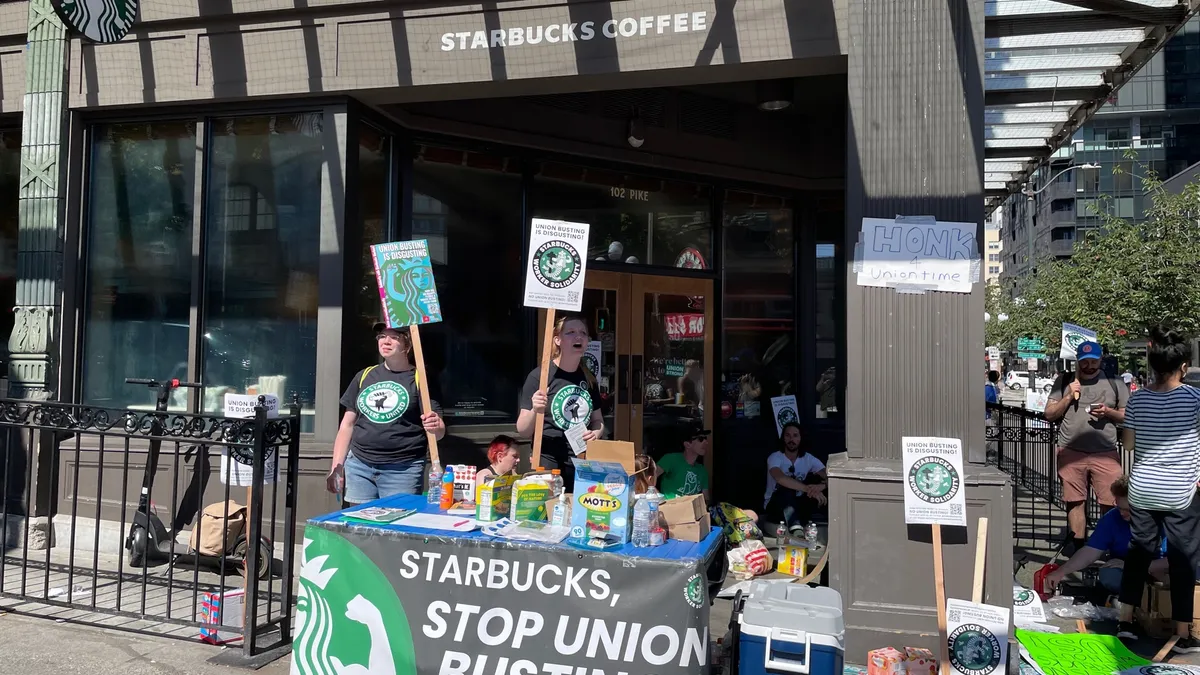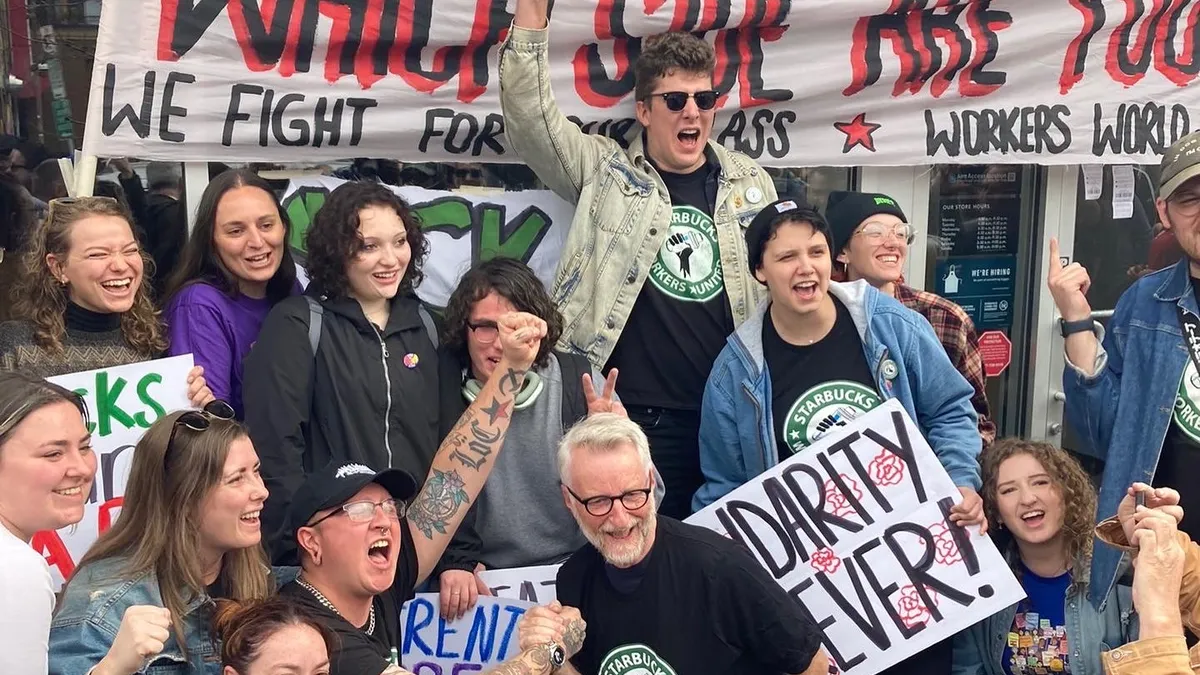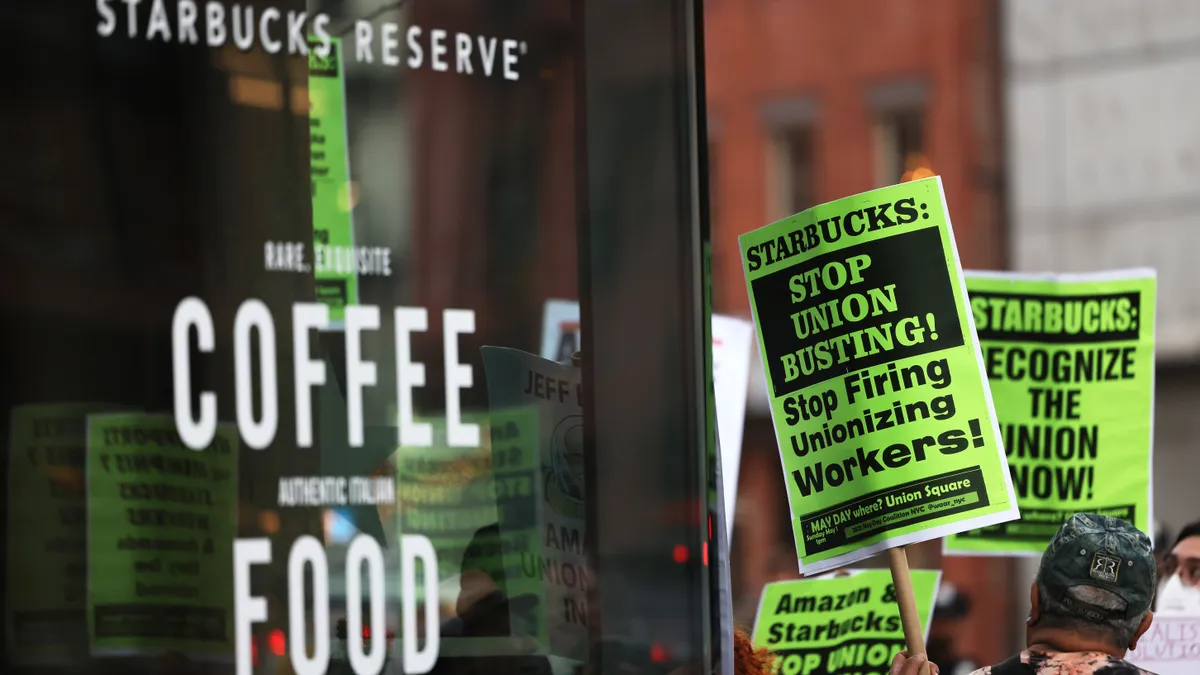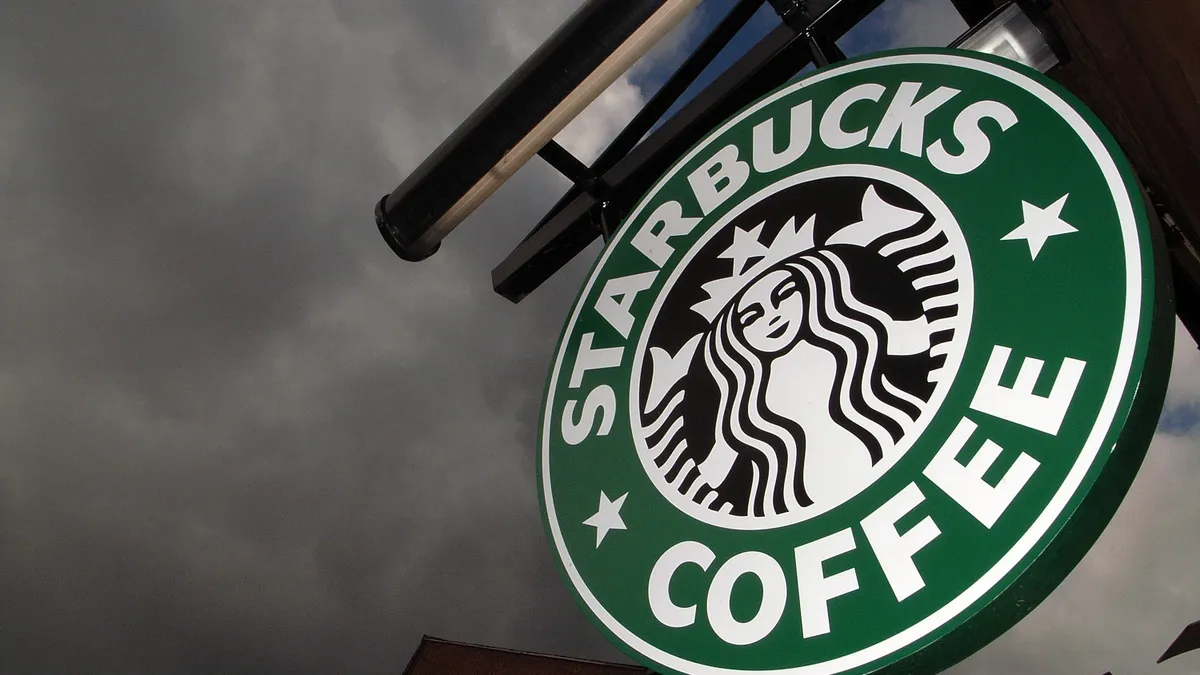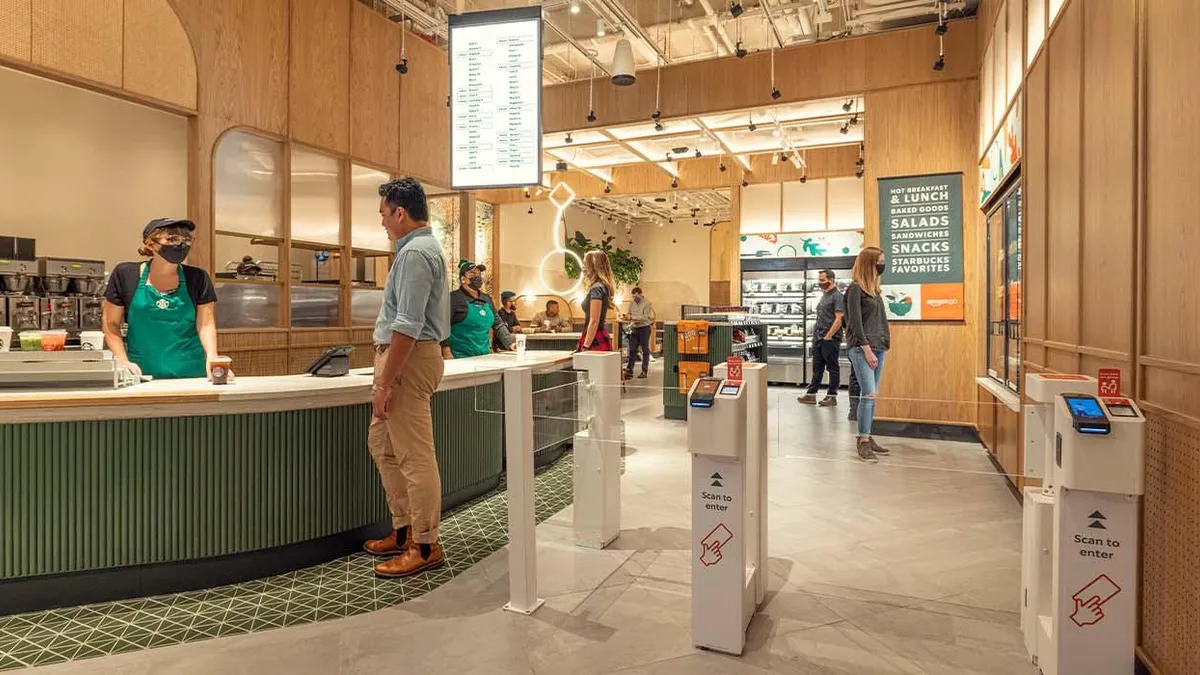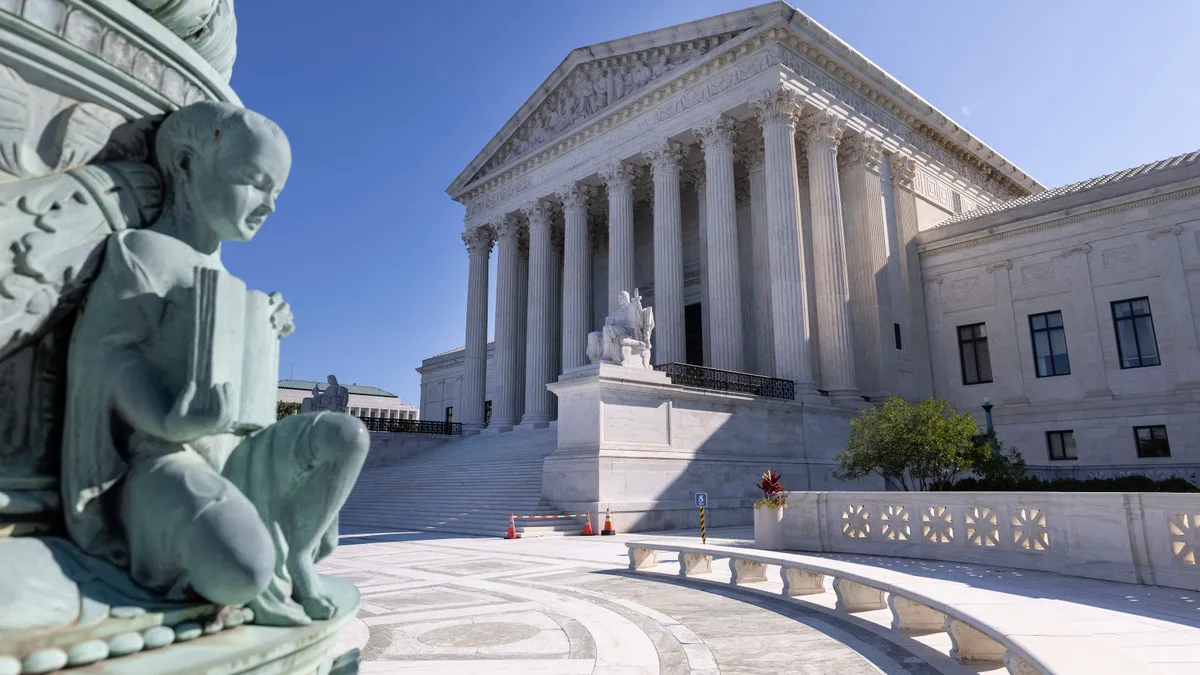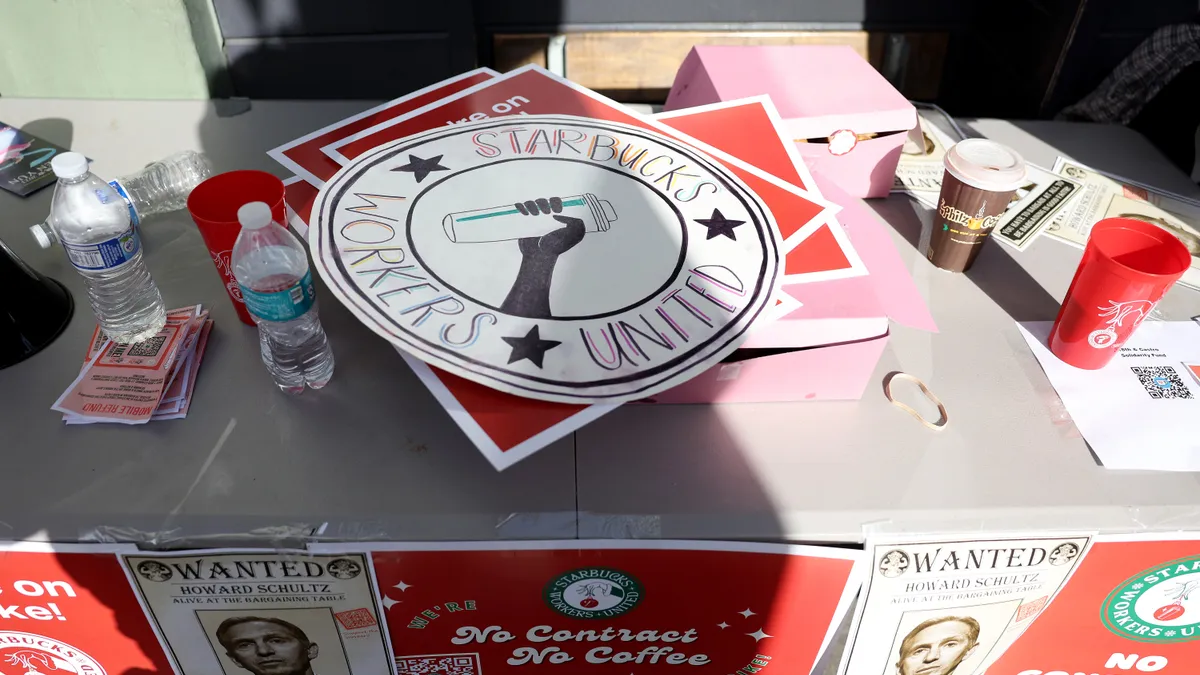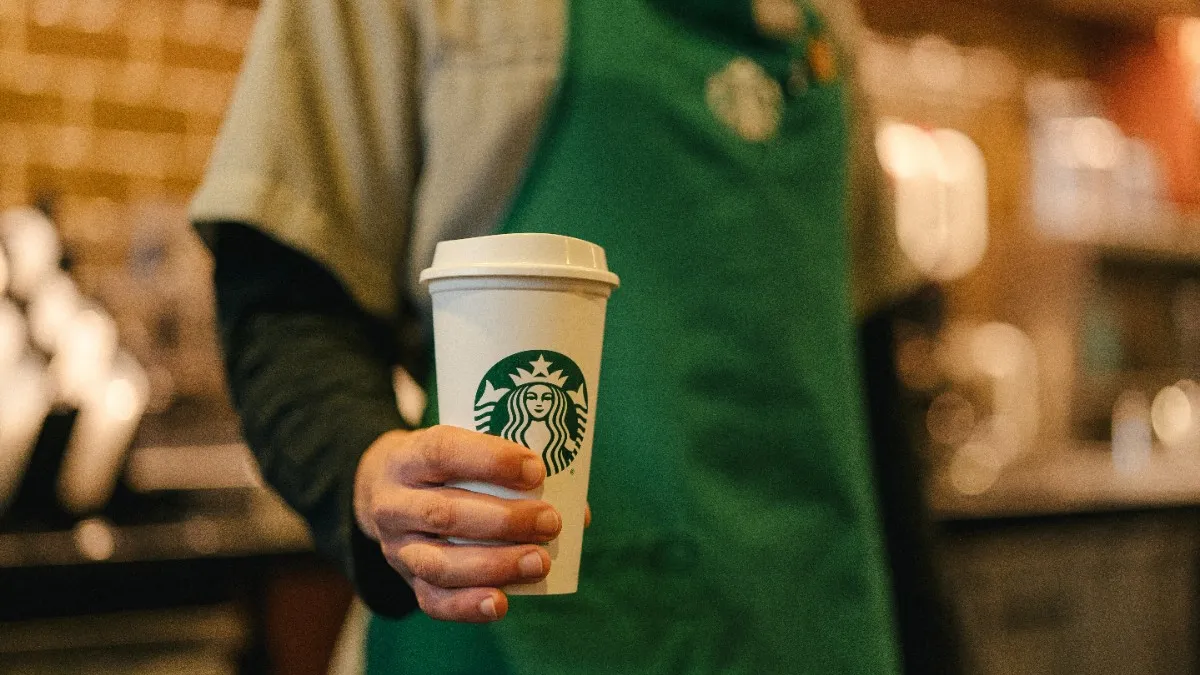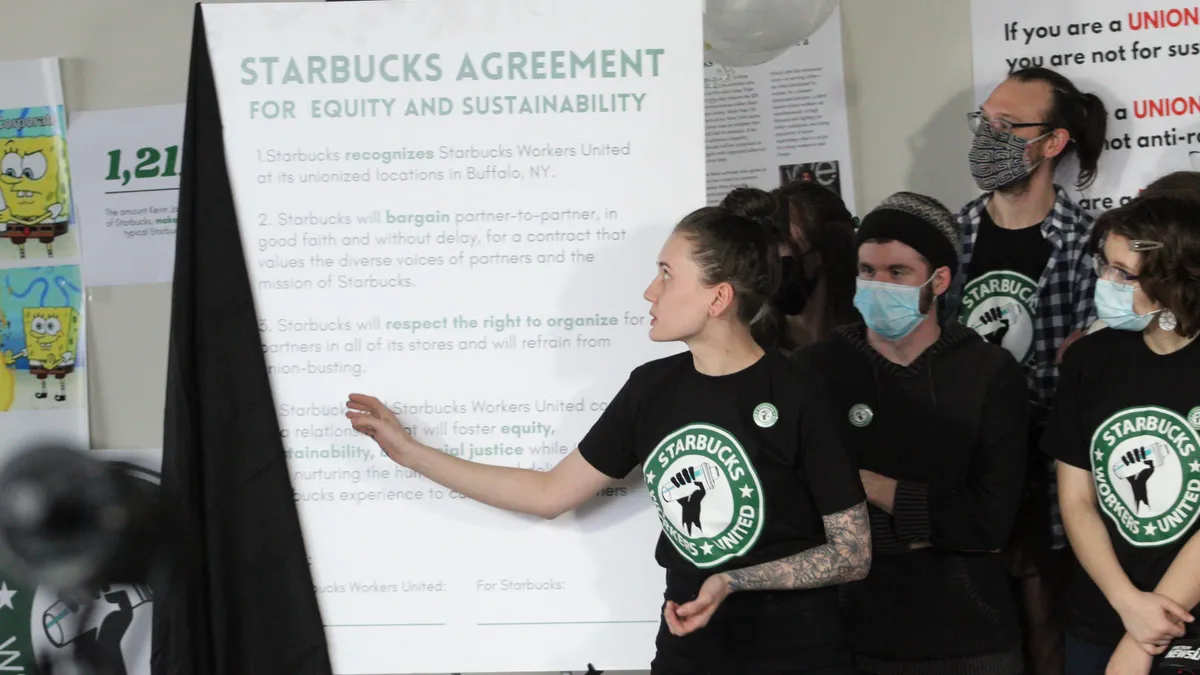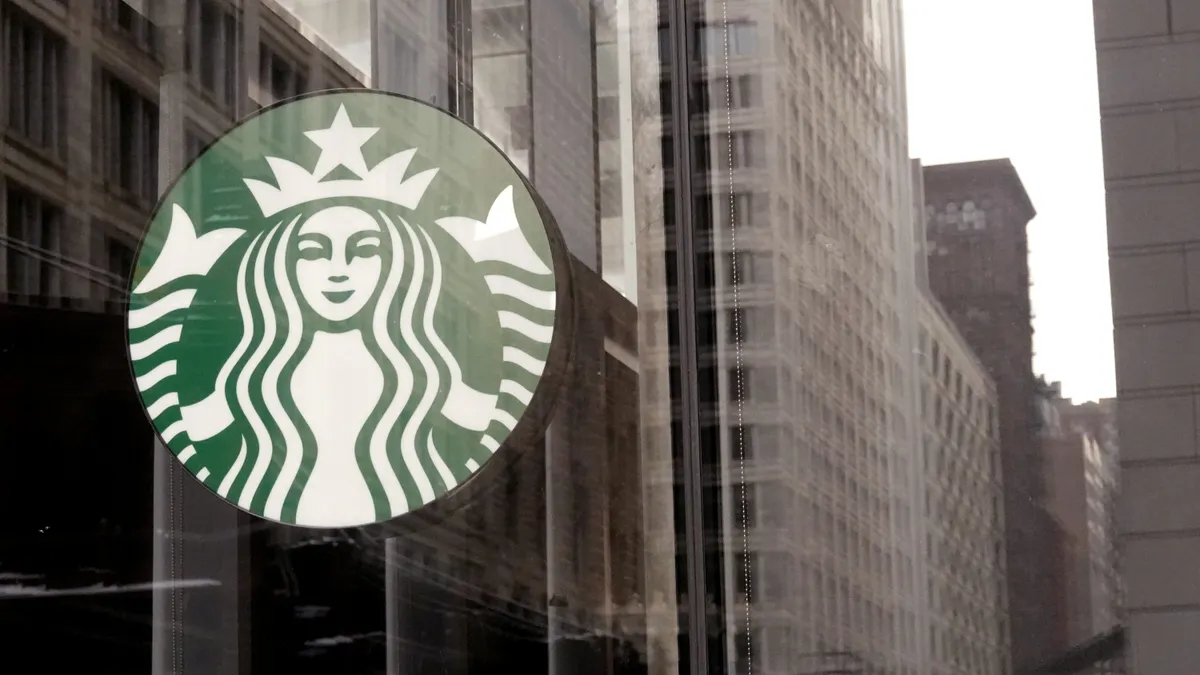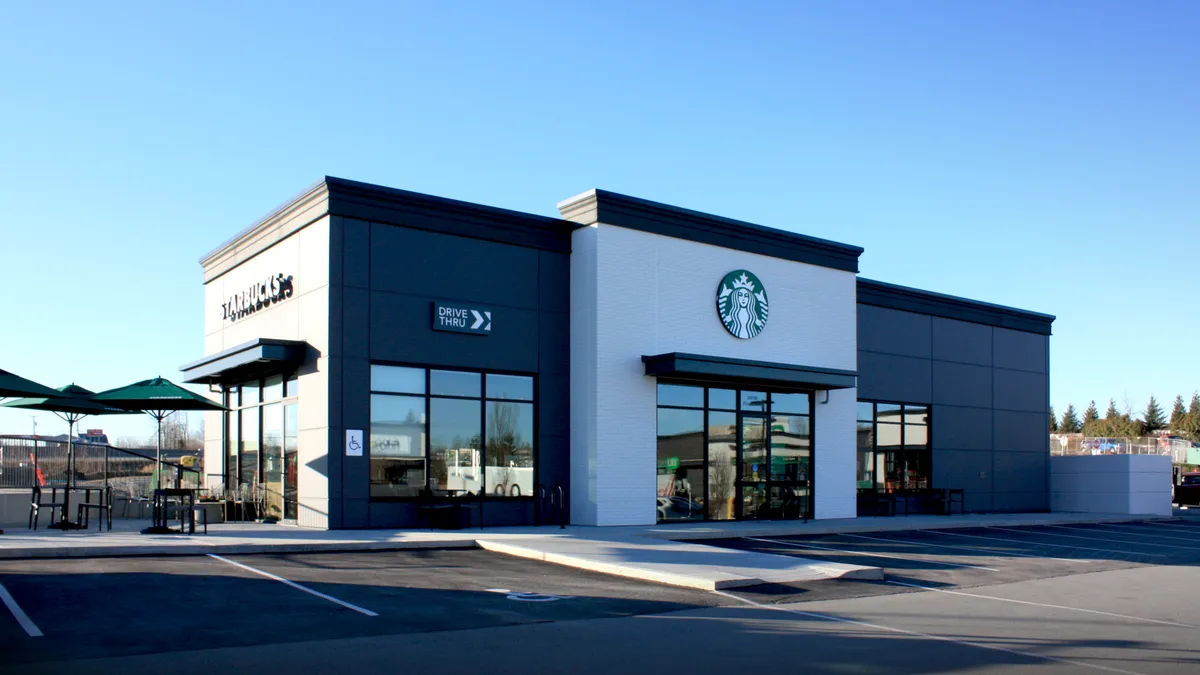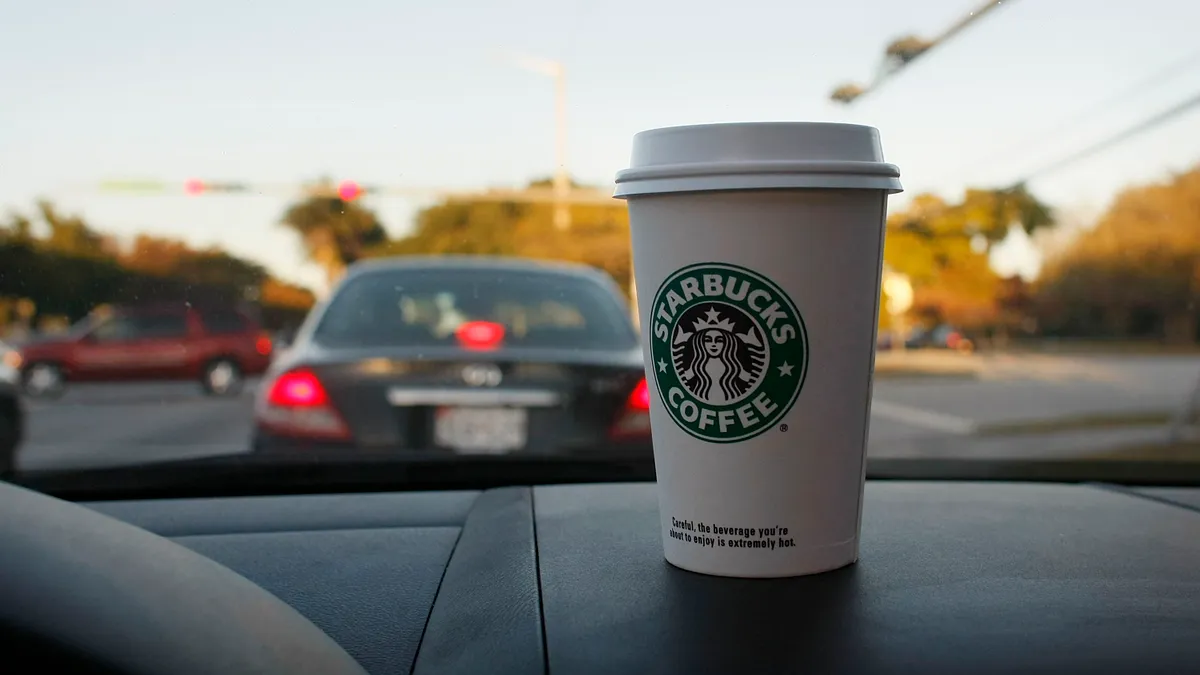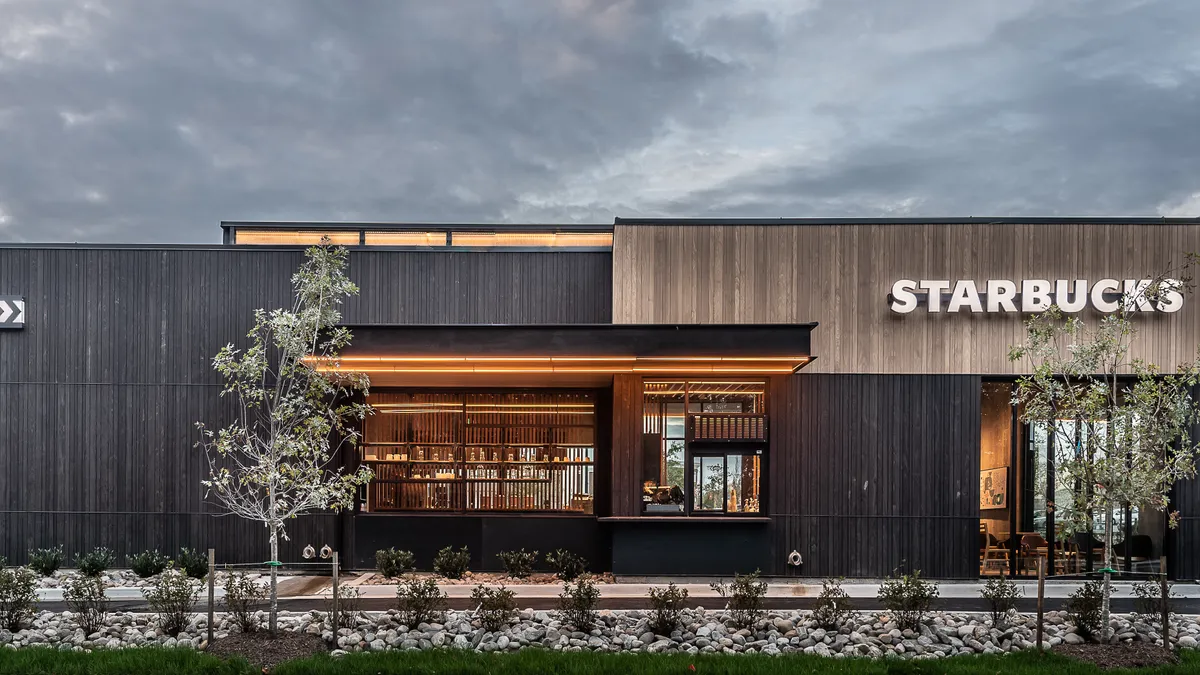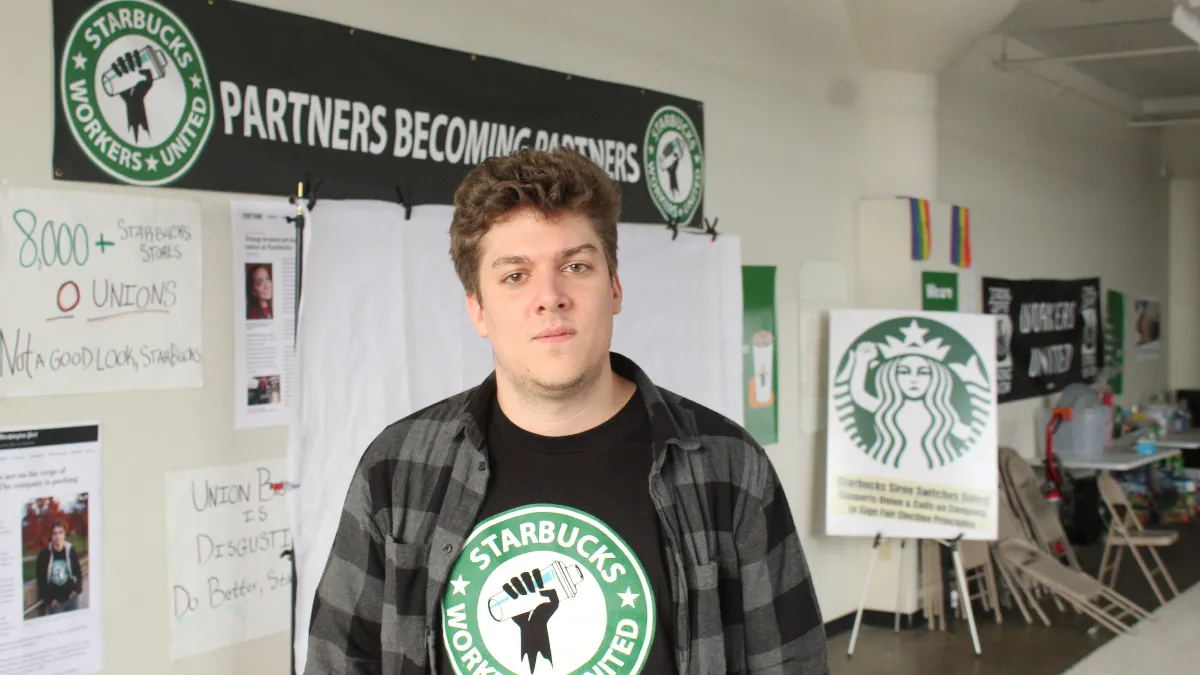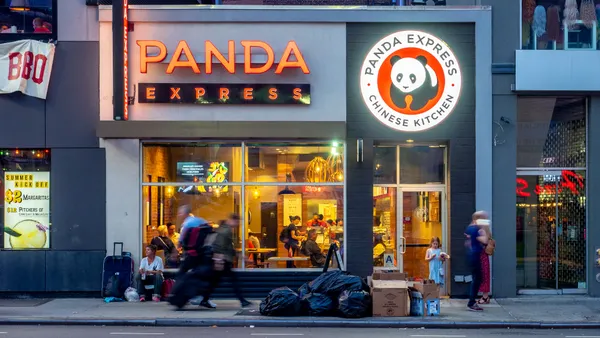Dive Brief:
- About 150 Starbucks Workers United members and several union staff members are meeting with Starbucks representatives at an undisclosed location in Atlanta on Wednesday to discuss issues impacting all unionized Starbucks locations represented by SBWU, Starbucks and the union told Restaurant Dive.
- A further 250 Starbucks Workers United members will be included as bargaining caucus members, meaning those in the room will report back to the broader group on proposals and progress in the talks.
- This is not a negotiation for a national contract, Starbucks said. Individual stores will still bargain individual contracts based in part on what is discussed at the national bargaining table and on specific, local issues.
Dive Insight:
The national bargaining session in Atlanta, and others to follow, will address wages, scheduling, staffing levels, workplace health and safety and healthcare benefits, according to a memo sent to Restaurant Dive by Starbucks Workers United’s media team.
Starbucks Workers United said the bargaining workers were selected in a store-by-store electoral process that involved about 70% of the roughly 10,000 workers represented by the union.
Previous rounds of bargaining in late 2022 failed to yield a contract when Starbucks refused to engage in hybrid bargaining with SBWU workers, despite engaging in hybrid effects bargaining over store closures. Effects bargaining is bargaining over the effects of unilateral business decisions that businesses don’t need to bargain over prior to implementing.
Neither the company nor union has said when they believe a tentative agreement, or individual store agreements, will be reached. Starbucks, however, pointed to comments late last year indicating it wished to sign a contract with the union by the end of 2024. In order to reach that goal, the two sides will likely need to meet relatively frequently unless leadership of either faction is willing to make steep concessions. An agreement would be subject to ratification by the union’s membership.
SBWU is demanding that Starbucks sign a set of fair election principles that would make it much easier for organizing workers to win union representation, in addition to just cause protections, a grievance procedure, a $20 minimum wage with annual increases and cost of living adjustments, and a healthcare plan that includes part-time workers, with co-pays capped at $10.
Since Howard Schultz’s departure as interim-CEO in March 2023, SBWU put together a series of symbolic national strikes, organized a 21-store single day organizing blitz and enlisted allies to pick off the company’s contracts with universities. Political allies of organized labor, including pension funds from New York City and heavily unionized industrial cities in the U.K., pushed shareholders to vote for a labor rights review. The Strategic Organizing Center, a labor federation that includes Workers United, put together a slate of board candidates.
But the sharpest pro-union pressure may have come from consumers. After the company sued the union for expressing solidarity with Palestine, supporters of SBWU initiated a boycott of the company that likely hurt its traffic with occasional consumers.



